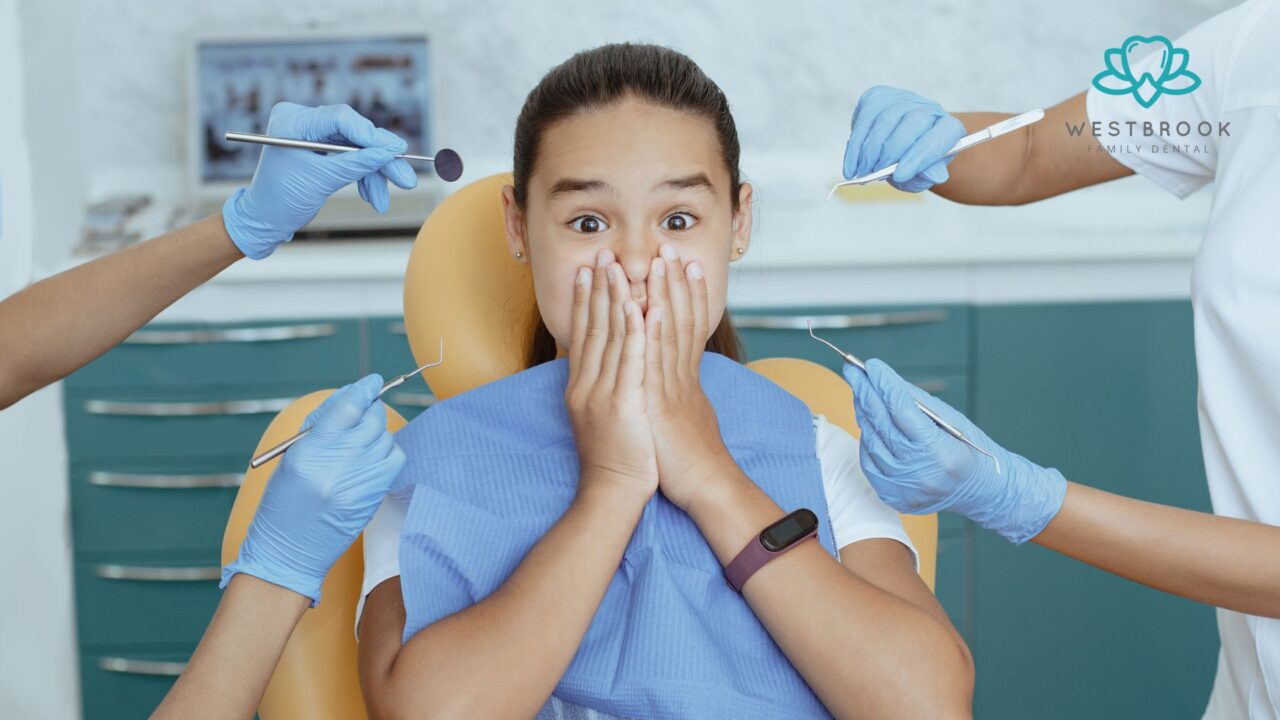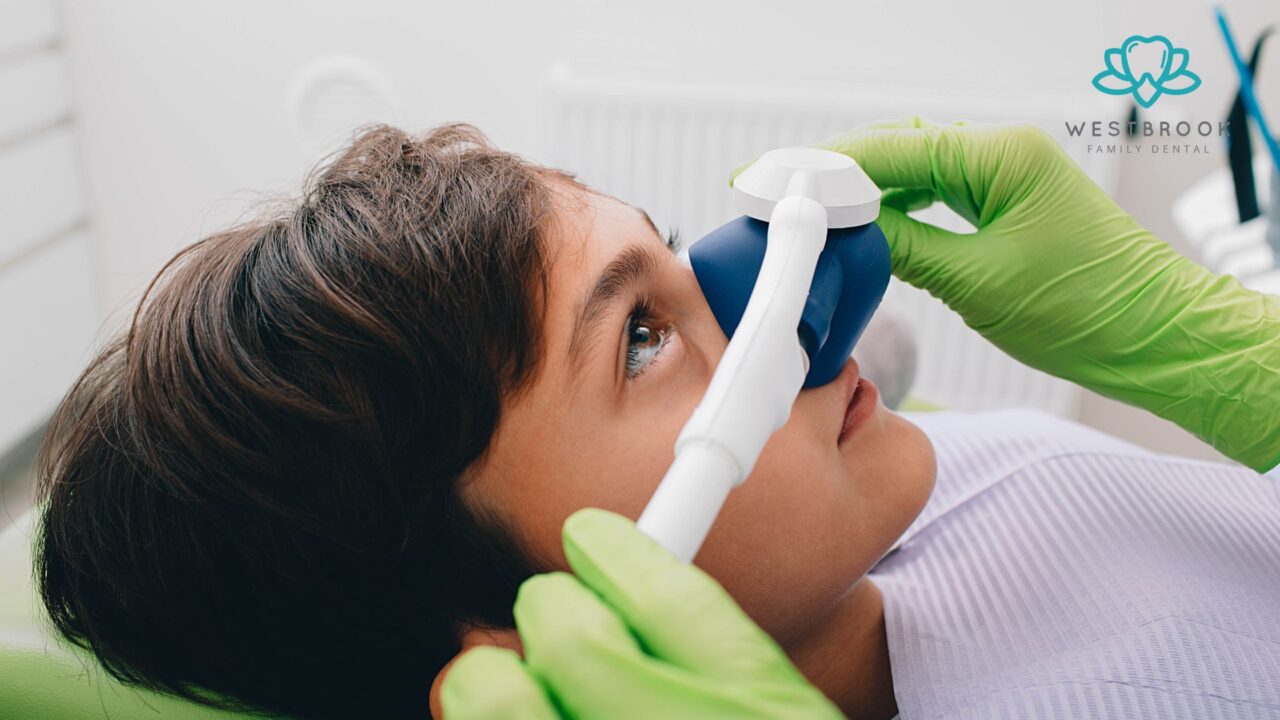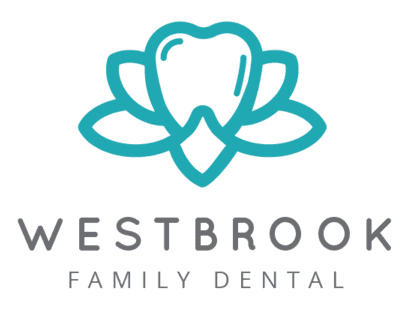Dental anxiety is a common issue that affects people of all ages, but children are particularly susceptible to this fear. The unfamiliar sights, sounds, and sensations of a dental office can make young patients feel uneasy, which may lead to avoidance of necessary care. Addressing dental anxiety early is crucial for building lifelong positive dental habits and ensuring good oral health.
If you’re looking for a compassionate dentist in Westbrook or a friendly dentist in Toowoomba, this comprehensive guide will provide you with valuable insights and actionable tips to help your child overcome dental anxiety.
Why Is Dental Anxiety Common in Children?

Children often fear what they don’t understand. A dental visit involves new and sometimes intimidating experiences, such as:
- Unfamiliar Environment: The dental clinic is filled with unusual equipment, bright lights, and sterile smells that can overwhelm a child’s senses.
- Fear of Pain: Even if they’ve never experienced a painful procedure, children may fear pain due to stories they’ve heard from others or media portrayals.
- Loss of Control: Sitting in a chair while someone works inside their mouth can feel invasive and uncomfortable for a young child.
- Previous Negative Experiences: A prior unpleasant visit can leave a lasting impression, increasing anxiety for future appointments.
Understanding the root cause of your child’s anxiety is the first step in addressing it effectively.
The Impact of Dental Anxiety on Oral Health
Dental anxiety in children can have long-term consequences if not addressed:
- Avoidance of Care: Fearful children may refuse to visit the dentist, leading to missed checkups and treatments.
- Increased Risk of Oral Issues: Without regular care, cavities, gum disease, and other dental problems can develop.
- Negative Dental Habits: Anxiety can lead to resistance to brushing and flossing at home.
- Lasting Fear into Adulthood: If not managed, dental anxiety can persist into adulthood, creating a lifelong barrier to proper oral care.
Parents play a vital role in helping children overcome these fears and build a positive relationship with dental health.
Signs of Dental Anxiety in Children
It’s not always easy to identify dental anxiety, especially in younger children who may not express their fears verbally. Look out for these signs:
- Crying or tantrums before or during a dental appointment.
- Physical symptoms like stomachaches, nausea, or headaches.
- Refusal to open their mouth during a checkup.
- Difficulty sleeping the night before a dental visit.
- Avoiding discussions about oral health or brushing their teeth.
Recognizing these signs early allows you to take proactive steps to ease your child’s fears.
How Can Parents Help Ease Dental Anxiety?

As a parent, you have a powerful influence on how your child perceives dental care. Here are several strategies to help:
1. Start Dental Visits Early
- Schedule your child’s first dental visit by their first birthday or when their first tooth erupts.
- Early exposure helps them become familiar with the environment, reducing fear of the unknown.
- Regular checkups with a trusted dentist in Westbrook or dentist in Toowoomba can build a positive association with dental care.
2. Choose the Right Dentist
- Look for a child-friendly dentist experienced in managing dental anxiety.
- Practices like Westbrook Family Dental and dentists in Toowoomba create a welcoming atmosphere for young patients.
- Ask about sedation dentistry or other techniques designed to ease anxiety if needed.
3. Use Positive Language
- Frame dental visits as a fun and exciting experience.
- Avoid negative words like “pain,” “needle,” or “hurt.” Instead, use terms like “tickling teeth” or “shiny smiles.”
4. Practice at Home
- Role-play a dental visit with your child taking turns being the dentist and patient.
- Use a toothbrush to “inspect” their teeth and count them, mimicking what happens during a checkup.
- Books and videos about visiting the dentist can also help demystify the experience.
5. Encourage Questions
- Let your child ask questions about their upcoming visit.
- Provide simple, honest answers to help them feel prepared and confident.
6. Provide Comfort and Support
- Allow your child to bring a favorite toy, blanket, or stuffed animal to the appointment.
- Stay with them during the visit if the dentist permits, offering reassurance and encouragement.
7. Teach Relaxation Techniques
- Deep breathing exercises can help calm nerves before and during the appointment.
- Use visualization techniques, encouraging your child to imagine a favorite place or activity.
8. Lead by Example
- Show your child that dental visits are a normal part of life by maintaining your own routine checkups.
- Speak positively about your experiences to model confidence.
Modern Techniques for Managing Dental Anxiety

Advancements in dental care have made it easier to address dental anxiety in children:
- Sedation Dentistry: Options like nitrous oxide (“laughing gas”) can help anxious children relax.
- Distraction Techniques: Many dental offices offer TVs, music, or virtual reality headsets to keep kids engaged.
- Tell-Show-Do Method: Dentists explain and demonstrate procedures in a non-threatening way before proceeding.
- Pain-Free Technology: Modern tools and techniques minimize discomfort, reducing fear of pain.
The team at Westbrook Family Dental and dentists in Toowoomba utilize these methods to create a stress-free experience for young patients.
Benefits of Addressing Dental Anxiety Early
Helping your child overcome dental anxiety offers numerous benefits:
- Better Oral Health: Regular visits ensure early detection and prevention of dental issues.
- Increased Confidence: Positive dental experiences build self-esteem and reduce fear.
- Lifelong Healthy Habits: Children who feel comfortable with the dentist are more likely to maintain good oral hygiene as adults.
How Westbrook Family Dental and Toowoomba Dentists Help

At Westbrook Family Dental, we understand the unique needs of children with dental anxiety. Our team is committed to creating a warm and friendly environment where kids feel safe and cared for. Similarly, dentists in Toowoomba are known for their compassionate approach, ensuring every child’s visit is positive and stress-free.
What Sets Us Apart?
- Child-friendly waiting areas with engaging activities.
- Gentle techniques tailored to each child’s comfort level.
- Clear communication to build trust with young patients.
- Flexible appointment scheduling to accommodate families.
Practical Tips for Parents: What to Do Before and After the Appointment
Before the Appointment
- Talk positively about the visit and explain what will happen.
- Read a book or watch a video about visiting the dentist.
- Pack a small bag with comforting items like a toy or blanket.
During the Appointment
- Stay calm and positive, as children often pick up on parental anxiety.
- Encourage your child to follow the dentist’s instructions.
- Offer praise and reassurance throughout the visit.
After the Appointment
- Celebrate their bravery with a small reward or treat.
- Discuss the visit and emphasize the importance of oral health.
- Maintain consistent dental visits to build familiarity and trust.
Final Thoughts
Dental anxiety is common in children, but with the right strategies and support, it can be managed effectively. By starting early, maintaining open communication, and choosing a child-friendly dentist in Westbrook or dentist in Toowoomba, you can help your child build a positive relationship with their oral health.
At Westbrook Family Dental, we’re dedicated to providing gentle and compassionate care for children. Visit westbrookdental.com.au to schedule your child’s next appointment and take the first step toward a lifetime of healthy smiles.
FAQs About Dental Anxiety in Children
1. Is dental anxiety common in children?
Yes, dental anxiety is quite common in children. Many kids experience some level of anxiety or fear when it comes to visiting the dentist, which can stem from various factors such as unfamiliarity with the dental setting or previous negative experiences.
2. What are the signs and symptoms of dental anxiety in children?
Common signs and symptoms of dental anxiety in children include crying, clinging to parents, expressing fear of dental procedures, or even physical symptoms like stomachaches or headaches before a dental visit.
3. What causes dental anxiety or phobia in children?
The causes of dental anxiety and phobia can vary. They may include fear of dental pain, negative past experiences, fear of the dental chair, or observing other people’s negative reactions to dental treatment.
4. How can parents help reduce their child’s dental anxiety?
Parents can help reduce dental anxiety by discussing the visit in a positive light, preparing their child for what to expect during a dental procedure, and using calming techniques, such as deep breathing or distraction methods during the appointment.
5. What strategies can be used to cope with dental anxiety in children?
Strategies for coping with dental anxiety include using relaxation techniques, bringing a favorite toy or comfort item to the dental practice, and scheduling appointments at times when the child is less likely to be tired or irritable.
6. Can dental anxiety in children lead to avoiding dental visits?
Yes, children who suffer from dental anxiety or phobia may avoid going to the dentist, which can lead to neglecting their dental health and potentially worsening dental issues over time.
7. How can a dentist help children with dental anxiety?
Dentists can help by creating a friendly and welcoming atmosphere, using child-friendly language, and allowing parents to stay with their child during the dental procedure. They may also employ techniques to reduce anxiety, such as taking breaks during treatment.
8. Is it normal for children to fear the dentist?
Yes, it’s normal for children to have some fear of dentists. Many people experience dental fear at some point in their lives, but with proper support and understanding, this anxiety can often be managed effectively.
9. What should parents do if their child has severe dental anxiety?
If a child experiences severe anxiety related to dental visits, parents should consider discussing this with the dentist. They may suggest specialized techniques or therapies to help the child cope with their dental fear and ensure a more positive experience.



